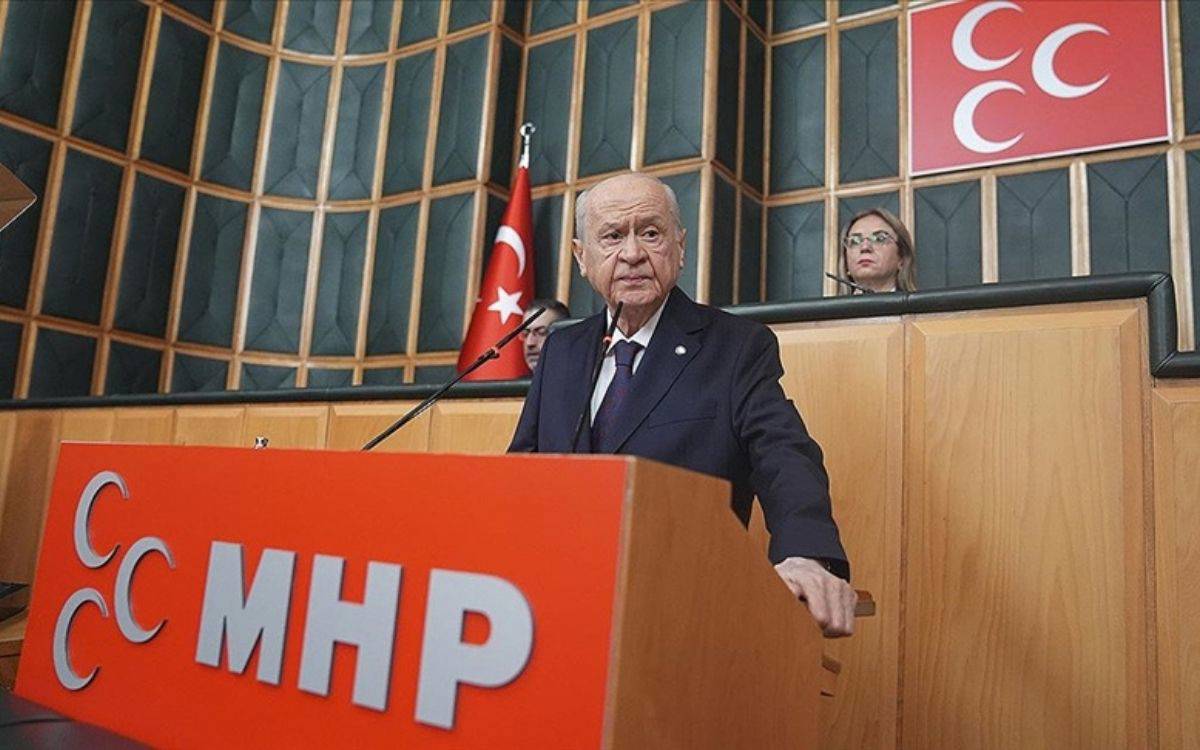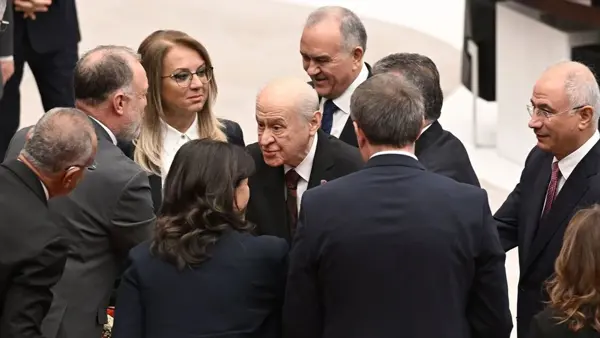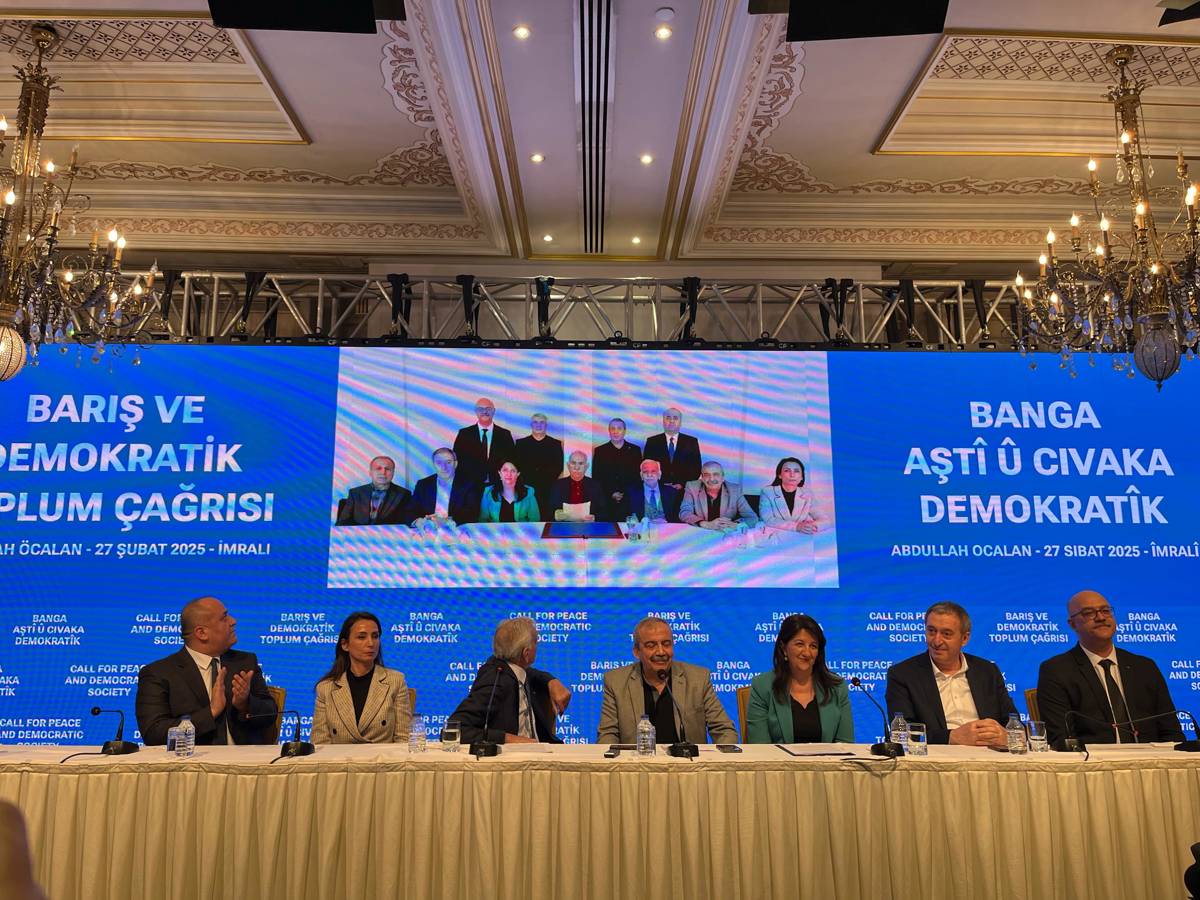Bahçeli changes tune on PKK ceasefire announcement


Turkish nationalist leader Devlet Bahçeli issued a statement on Mar 9, addressing the responses from Kurdish groups following Kurdistan Workers' Party (PKK) leader Abdullah Öcalan’s call for the group to disarm.
In the written statement released by the Nationalist Movement Party (MHP), Bahçeli dismissed the PKK’s ceasefire announcement, calling it "neither correct, nor balanced, nor appropriate." He insisted that the group must "lay down arms immediately and unconditionally" and "hand over its bloody weapons to the Republic of Turkey."
This marks a shift in tone from his earlier comments. On Mar 1, Bahçeli had described the PKK’s ceasefire as "organizational consistency that benefits everyone."

Despite health issues, Bahçeli seems at steering wheel of Turkey’s new Kurdish initiative
PKK leaders have stated that they will go beyond a ceasefire and follow Öcalan’s call to dissolve the organization. Mustafa Karasu, a senior figure in the Kurdistan Communities Union (KCK), an umbrella group that includes the PKK, said on Mar 6 that in order for the PKK to disband, Öcalan must be "in a position where he can work freely," referencing Bahçeli’s previous remarks about the possibility that Öcalan might benefit from the "right to hope" if the declared the dissolution of the militant group.
Another important detail that could lead to potential disagreement by the government and the PKK is a statement by MP Sırrı Süreyya Önder, who was part of the delegation that visited Öcalan. While Öcalan’s Feb 27 letter did not explicitly mention any conditions for disarmament, Önder relayed an additional message from him: "Undoubtedly, for the practical implementation of disarmament and the dissolution of the PKK, the recognition of democratic politics and a legal framework is necessary."
Syrian Kurdish groups respond
Bahçeli also insisted that Syrian Kurdish groups should heed Öcalan’s call to disarm, citing his statement that "all groups must lay down arms."
However, the Syrian Democratic Forces (SDF), which controls large parts of northern and eastern Syria, rejected the notion that the call applied to them. The Democratic Union Party (PYD) and the People’s Protection Units (YPG), which form the core of the Kurdish-led autonomous administration, made similar statements.
Bahçeli dismissed these claims, asserting that Öcalan's call "explicitly applies to the PKK and all of its extensions and affiliates."
"The idea that the YPG and similar terrorist formations are exempt from this call, and that dissenting voices are deliberately spreading this baseless view, is entirely contradictory to the nature of the organization and its founding leadership.
"The founder of the terrorist organization has called for its dissolution. Trying to buy time, cloud the situation, undermine the positive momentum, and intensify demands for political and legal concessions is nothing but recklessness."
Background
The process leading to Öcalan’s call for the PKK's disarmament was set in motion by Bahçeli, the main political ally of President Recep Tayyip Erdoğan. On Oct 22, Bahçeli suggested that Öcalan could be granted the "right to hope"—a legal provision that allows for parole—if he formally declared the PKK’s dissolution. In the following weeks, he went further, calling for direct negotiations between the pro-Kurdish DEM Party and Öcalan.
Following Bahçeli’s remarks, a DEM Party delegation visited Öcalan in December at İmralı Island, where he has been imprisoned for 25 years. This was the first meeting with him in years. Subsequent visits took place in January and February, culminating in Öcalan’s disarmament call on Feb 27.

PKK leader Öcalan calls on group to lay down arms in historic statement
(VK)




